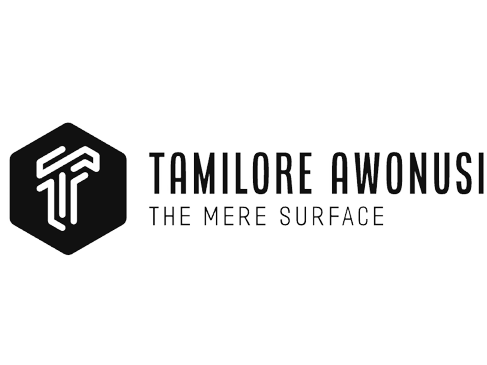Growing up, your life becomes quite repetitive. Eat, school, sleep, repeat. It’s a norm for all of society. We don’t question it as we go through the motions, rather we embrace and slug through it to the finish line. Only when we reach the finish line do we question- was it all worth it?

In 2018, 55,700 students in Ireland sat the leaving cert yet only 44,000 (78%) of those students went on to attended university. That 44,000 does not also include the amount that dropped out after the first year. In the US as well, only 70% of high school graduates pursued third level education. So what happens to the collective of adolescents who don’t go to a third level institute? Did you just waste 14 years of your life in a classroom? Yes and no. It’s imperative in the modern era that you have a high school diploma, but I can not say the same for a University degree. Only 20% of the most popular jobs in the US require a university degree. We leave school with our Leaving Cert, A-levels, SATs and so on and we’re thrown into a world where for most parts, we don’t care for it. Obviously, for most, we need it to gain admittance into University, but it’s essentially a stepping stone.
Education is wealth and school is vital for our transition to adulthood. But in many parts, it does not prepare us for adulthood. The subjects we’re offered in school vary from English, maths, languages and so on. These subjects are fundamental to our learning and I can’t imagine many adolescents disagreeing with that, but how do these subjects prepare us for life after school? They don’t. While we use basic math, English and other languages in our daily lives, we don’t use the advanced methods we were taught in school. A study conducted by Northeastern University sociologist Michael Handel showed that less than a quarter of US workers jobs required mathematical knowledge that goes beyond basic fractions and percentages.
In Ireland, students are required to sit six subjects, only three of those subjects are referred to as core subjects; English, Maths, Irish. It is recommended that we sit seven or eight to maximize our university options. I’ll use myself as an example. I studied business, biology, French, economics and home economics. I went on to study Economics and Finance at University, but only 3 of those 8 subjects were related to my degree. I spent 3 years “studying” those subjects and sat 11 papers in eight days. I remember after every exam I threw away all my notes and said “thank God, I never have to do that again” and I was right, I didn’t. If I was to sit those exams a month after I took them I would more than likely fail them all. Why is this? In school, we’re taught to prepare for exams that test our memory. Teachers say “you’ll need to remember this for the exam” never “this is how it’ll apply in the future.” All we do is memorise subjects we’re taught in school, very few of us have an actual understanding. It’s almost a waste of time.

If many of us don’t go to university and those of us that do have no correlating subjects to our degree, why haven’t education systems realised that it is time to change our curriculum? Again this article isn’t disregarding school, rather it’s highlighting the faults in the system and identifying how it can be improved. We spend 6- 9 hours a day in school, as much as a full workday. We already mentioned some of these subjects prove to be of no use to the majority of us in the future, so why not offer subjects that are? “Reality Check” a report composed by Unite Students stated that three-fifths of Uni students do not believe they have an understanding of student finance. This launches students into huge debt that weighs over their future. Not to mention, a recent survey by Edvisors shows that 64% of students run out of money before the end of the semester at some point in their college careers. Money management and financial planning are a few of the many topics I believe that should be addressed in school before being thrown into the big bad world. Some are lucky enough to pick it up or have parents help, but a lot of us still struggle with it and are a reflection of those statistics.

It’s safe to say school isn’t one of the healthiest environments either. You have prepubescent adolescents in classrooms for 6-9hrs a day for 5 days a week, while many don’t even want to be there. In the United States, it’s reported that 1 in 5 students suffer from a mental illness. While schools offer counseling and support for students who do suffer from a mental illness, a further step should be taken in educating teens on their mental health and wellbeing. A report by Harvard Review of Psychiatry stated that programs relating to mental health awareness have reduced anxiety, improved grades, lowered substance abuse rates, and reduced school bullying. Its time to implement these programs into the school curriculum.
We spend some of our most influential years in school, yet what we are taught doesn’t influence us. Society is still battling age-old problems like racism, discrimination, and sexism. These topics may be raised in history classes, but they don’t go into much depth. A suggested subject to introduce to school curriculums would be cultural studies/ sociology. We could help teens understand the meaning of equality, accepting one and other, understanding different cultures/religions and respecting each other’s backgrounds. Our planet is on its last legs, start introducing sustainable living to students so that they can adapt to it. These are our influential years, so why not pick up good habits and mold our futures? It’s apparent our schooling system and curriculum is outdated and becoming obsolete, we spend our first 18 years there and some don’t have a lot to show for it. It’s time we questioned the system and influenced it: Let’s utilise the hours we spend in school to benefit all children while still incorporating the fundamentals.

